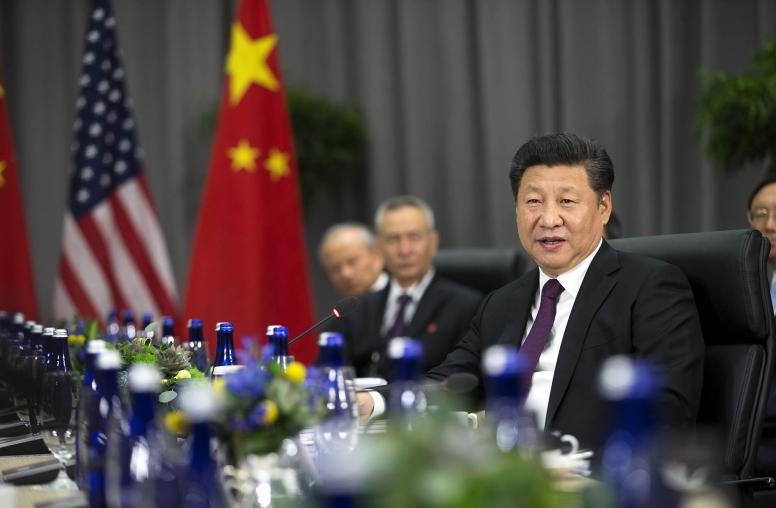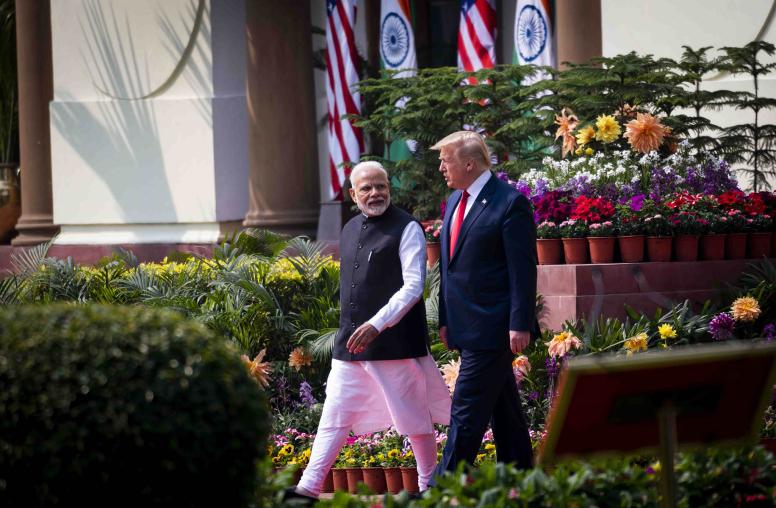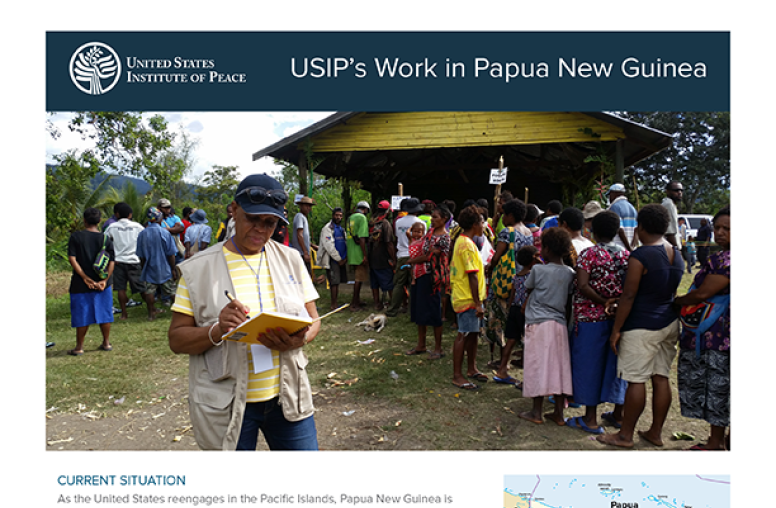Research & Analysis
U.S. Institute of Peace’s articles, reports, tools and other features provide policy analysis, research findings, and practitioner guides. These publications examine critical conflict issues at the center of the Institute’s work to prevent and resolve violent conflict.
The views expressed in these publications are those of the author(s).

El Arte de un Acuerdo para Venezuela
A medida que la crisis venezolana se prolonga y se perfila otro año frustrante de esperanzas frustradas y hambre, surge la pregunta de si existe un enfoque más efectivo. El país lleva 20 años estancado mientras los regímenes de Chávez y luego de Maduro han intentado aferrarse al poder frente a una oposición que ha buscado desplazarlos, en su mayoría —aunque no siempre— por medios pacíficos.

The Art of a Deal for Venezuela
As the Venezuelan crisis grinds on into what is expected to be another frustrating year of dashed hopes and empty bellies, the question of whether there is another approach that would be more effective looms. The country has been stuck for 20 years as the Chavez and subsequent Maduro regimes struggled to hold on to power against an opposition that has sought to displace them, largely — but not always — through peaceful means.

Xi Jinping’s Calculus of Cross-Strait Conflict
The strategic costs to China incurred by a comprehensive military campaign to compel unification with Taiwan likely are myriad and exorbitant. However, Taiwan’s prominent position in the Chinese Communist Party’s (CCP) core-interest hierarchy complicates assessments of the extent to which any cost drive the party’s decisions regarding use of force for unification. Beijing’s calculation of costs of action versus perceived cost of restraint is a foremost consideration in any Chinese use-of-force equation, and therefore critical in weighing U.S. options for deterring Chinese military action against Taiwan.

Modi’s Washington Visit Signals U.S.-India Ties Will Continue Upswing
Last week, Indian Prime Minister Narendra Modi’s visit to Washington marked the fourth meeting between U.S. President Donald Trump and a foreign leader since the start of the new administration. Despite differences over tariffs, Modi’s trip signaled that U.S.-Indian relations will continue along the positive trajectory seen in recent years, particularly in defense and technology cooperation. Trump made clear that he sees value in India’s role as a counterweight to China, but that he also views Delhi as an important player and key partner outside the context of strategic rivalry.

The Current Situation in Papua New Guinea
As the United States reengages in the Pacific Islands, Papua New Guinea is emerging as an increasingly important U.S. partner. It is the region’s largest country, with a landmass about the size of California and a population estimated to be somewhere between 10 and 17 million. In April 2022, Papua New Guinea was designated as one of the focus countries under the U.S. Strategy to Prevent Conflict and Promote Stability (SPCPS). In May 2023, the United States and Papua New Guinea signed a Defense Cooperation Agreement.

Daniel Markey on U.S.-India Ties in the Year Ahead
U.S.-India relations under the new Trump administration “got off to a decent start” with Indian Prime Minister Narendra Modi’s visit to Washington, D.C., last week, says USIP’s Daniel Markey, who added that while there is some friction over looming tariffs, the U.S. approach to trade and defense seemed to be “music to India’s ears.”

AI at a Geopolitical Crossroads: The Tension Between Acceleration and Regulation
This week’s Artificial Intelligence (AI) Action Summit in Paris highlighted a growing divide among global powers. Both the U.S. and China favor rapid advancement and innovation. But the U.S. seeks to unleash the private sector, while China is rapidly expanding state-backed AI initiatives. Europe seeks a more cautious path with strong regulations to ensure safety and security. India is aware of the risks, but is advocating a middle ground and a "collective global effort" to ensure AI benefits for all.

À quoi ressemble le succès de la politique américaine en Haïti?
Début 2025, Haïti est toujours en proie à une crise nationale multiforme qui a pratiquement démantelé sa gouvernance politique, sa sécurité et sa stabilité économique. Cette situation désastreuse est avant tout une source de frustration pour les Haïtiens eux-mêmes.

What Does U.S. Policy Success Look Like in Haiti?
As of early 2025, Haiti is still suffering from a multifaceted national crisis that has all but dismantled the country’s political governance, security and economic stability. This dismal result is frustrating, most certainly for Haitian themselves.

Ki Sa Siksè Politik Etazini ta Dwe Sanble an Ayiti?
Apati kòmansman ane 2025 lan, Ayiti toujou ap soufri ak yon kriz nasyonal ki gen plizyè aspè ki prèske kraze gouvènans politik, sekirite ak estabilite ekonomik peyi a. Rezilta dezagreyab sa a fwistran, sètènman pou Ayisyen yo.